On the afternoon of December 27, the People's Representative Newspaper held a seminar on "Contributing ideas to the drafting of the Law on Special Consumption Tax (amended)". The seminar was attended by National Assembly delegates; experts; representatives of the British, French, and US embassies in Vietnam, and representatives of domestic and foreign enterprises and business associations in Vietnam...
In his closing speech at the Question and Answer Session at the recent 6th Session, National Assembly Chairman Vuong Dinh Hue requested the Government and relevant ministries and branches to "urgently propose amendments and supplements to tax laws and policies according to Plan 81/KH-UBTVQH15 of the National Assembly Standing Committee, amend regulations on expanding revenue sources and preventing tax base erosion".
Continuously improve special consumption tax policy; overcome difficulties and shortcomings in the practical implementation of the Law.
Implementing Plan 81/KH-UBTVQH15, the Ministry of Finance is amending the Law on Special Consumption Tax to resolve arising problems, encourage the conversion of import, production and use of environmentally friendly products, and limit the consumption of goods harmful to health.
Resolution No. 115/NQ-CP on the thematic meeting on law-making in July 2023, the Government assigned the Ministry of Finance to complete the dossier proposing the drafting of the Law on Special Transactions (amended), send it to the Ministry of Justice in advance to incorporate it into the Government's proposal to supplement the National Assembly's Law and Ordinance Development Program in 2024; submit this law to the National Assembly for comments at the 7th Session (May 2024) and pass it at the 8th Session (October 2024).
At the same time, the Government requested: “During the drafting phase of the Law, the Ministry of Finance shall continue to carefully study the proposed contents, supplement scientific and practical assessments, especially on the proposal to add taxable subjects, amend tax calculation methods, adjust and increase special consumption tax rates, etc.; solicit public opinions, especially those affected by the policy; actively consult organizations, experts, and scientists; coordinate effectively with relevant ministries and agencies; promote policy communication to create high consensus among people and businesses”.
Having identified the above contents, the Dialogue is an opportunity to record comments and policy proposals from National Assembly deputies, economic experts, and the business community, thereby contributing to the process of fully institutionalizing the Party's policies and the State's policies on perfecting the special consumption tax policy; overcoming difficulties and shortcomings in the practical implementation of the Law.
At the Seminar, delegates agreed that Vietnam currently applies special consumption tax according to the relative tax method (tax rate calculated as a percentage (%) of the taxable selling price) on alcoholic beverages. The applicable tax rate has been increased according to the roadmap since 2016. However, the current special consumption tax policy on alcoholic beverages has not achieved or optimized the goals set by the Government. Therefore, experts recommend that the Government should apply a simple and easy-to-understand mixed tax calculation method, avoiding the use of multiple tax rates or overly complicated calculation requirements. The Government also needs to promote to businesses and people the benefits of changing tax policies in the direction of: "high-alcohol products have high prices" and "drink less but drink better products".
According to experts and managers, Vietnam has a developed tax administration infrastructure to manage consumption taxes such as VAT and SCT. Therefore, Vietnam is ready to apply the mixed tax method in the SCT policy, helping to ensure greater transparency, efficiency and compliance. Accordingly, the mixed tax method combines elements of both the relative tax method and the absolute tax method, and may be the appropriate method for Vietnam at the present time to meet the policy objectives set by the National Assembly and the Government for SCT as well as to be in line with global trends.
Ms. Nguyen Thi Cuc, President of the Vietnam Tax Consulting Association, said that most developed countries apply the absolute method, while the rest, including Vietnam, use the mixed and absolute methods, which are reasonable. However, Vietnam's conditions are unique with very large brand classifications. We personally seek the views of the National Assembly and the Government, which proposes ensuring three factors: good for public health, business development, and state budget revenue...
Also at the seminar, the speakers affirmed that since 2008, the Law on Special Consumption Tax has been amended and supplemented four times and has come into effect and had a positive impact on many aspects of the economy and society.
Firstly, the Law on Special Consumption Tax has contributed to orienting the production and consumption of goods that are not beneficial to health and the social environment; it also contributes to implementing Vietnam's commitments when joining the World Trade Organization, the World Health Organization's Framework Convention on Tobacco Control, ensuring compliance with international practices.
Second, the Law contributes to orienting economical consumption of fossil fuels and encouraging the use of environmentally friendly fuels by stipulating lower tax rates for biofuels; battery-powered electric cars apply tax rates according to the roadmap: from March 1, 2022, it is 3%, 2%, 1% and from March 1, 2027, it is 11%, 7%, 4% depending on the number of seats...
Third, the Law contributes to stabilizing revenue sources for the state budget. According to data from the Ministry of Finance, in the period 2015 - 2020, the special consumption tax revenue of the following year was always higher than the previous year. The proportion of special consumption tax revenue in the total annual state budget revenue increased from 6.5% (2015) to about 8.3% (2020) and accounted for about 2% of GDP (2020).
“Although there are still some limitations, it can be said that the Law on Special Consumption Tax not only contributes to the budget revenue but is also an effective policy tool to guide production and consumption in society,” commented Ms. Nguyen Thi Mai Phuong, Vice Chairwoman of the National Assembly's Law Committee.
According to the Ministry of Finance's assessment, the special consumption tax policy still has some limitations such as: the taxable subjects are still narrow compared to international practice; some regulations on taxable subjects, non-taxable subjects, and item descriptions in the Tax Schedule are not really clear, leading to difficulties in implementation. Along with that, the tax rates on some items affecting health and society have not achieved the goal of limiting consumption...
From that reality, the speakers emphasized: Amending the Law on Special Consumption Tax is necessary to further promote the role of this tax in accordance with the Party and State's policies and orientations on perfecting the special consumption tax policy to regulate consumption in line with consumption trends in society towards protecting people's health and the environment, ensuring reasonable mobilization of resources for the state budget and in line with international tax reform trends. Amending the Law needs to ensure overcoming obstacles and shortcomings in the practical implementation of the Law.
At the seminar, Ms. Dang Ngoc Huong, European Chamber of Commerce in Vietnam (Eurocham) said that the recent Eurocham research report on tax also recommends that, from the Government's perspective, the report assesses aspects such as technology infrastructure, government administrative capacity and legal framework. The report also discusses the challenges associated with the transition to a mixed tax method, specifically the difficulties that may be encountered in switching to a mixed tax method and the response to the transition from the availability of current administrative procedures. At the same time, the report also considers the adaptation of businesses during the transition, highlighting challenges in tax compliance, pricing strategies and the impact on production.
Tax policy reform must be placed in the development process of the country and the economy.
Affirming that the amendment of the Law on Special Consumption Tax is of great significance in the current context, Dr. Dang Thi Thu Hoai, Head of the Department of Industry and Sectoral Economic Research, Central Institute for Economic Management (CIEM), said: “Tax policy reform must be placed in the development process of the country and the economy. When people's income, consumption behavior and the capacity of the apparatus have changed a lot, in other words, current conditions have changed, it is necessary to amend and supplement the Law on Special Consumption Tax”.
According to Associate Professor, Dr. Dinh Trong Thinh, an economic expert, the mixed tax model, which is a combination of relative and absolute taxes, is increasingly being applied by many countries. In 2008, only 55 countries applied mixed taxes, which increased to 62 countries in 2018. In ASEAN, Thailand, Malaysia and the Philippines have implemented the mixed tax model on some categories of alcoholic beverages.
“It is not by chance that developed countries apply the mixed tax model. We have conducted some research on this issue and the research results show that it is time for Vietnam to apply a mixed tax on alcoholic beverages instead of the current relative tax. The important issue is the specific conditions and implementation methods,” Dr. Dang Thi Thu Hoai expressed her opinion.
Having also studied the feasibility of a mixed tax model for special consumption tax in Vietnam, Ms. Dang Ngoc Huong, Wine and Spirits Subcommittee, European Chamber of Commerce in Vietnam (Eurocham) added that special consumption tax aims at three goals - consumer health, budget, and ensuring fairness among businesses. Depending on the higher goal, Vietnam will choose the appropriate tax model. "We need a transition, which is the mixed tax model and this model is feasible in the current conditions of Vietnam." Citing the case of the Philippines, which encountered some difficulties when switching to a mixed tax, Ms. Huong said that the country has reduced the amount of alcohol consumed by its people, while also solving the issue of fairness between domestic products and imported products.
It can be seen that the Law on Special Consumption Tax (amended) when promulgated will have a strong impact on consumer behavior as well as business operations and the state budget. Speakers attending the discussion hope that after this amendment, the Law will further promote its role in life, economy and society; ensure a stable and favorable business environment; harmonize the interests of the State, people and businesses as well as be consistent with international practices./.
Source link




![[Photo] Prime Minister Pham Minh Chinh receives Swedish Minister of International Development Cooperation and Foreign Trade](https://vphoto.vietnam.vn/thumb/1200x675/vietnam/resource/IMAGE/2025/5/12/ae50d0bb57584fd1bbe1cd77d9ad6d97)
![[Photo] Prime Minister Pham Minh Chinh works with the Standing Committee of Thai Binh Provincial Party Committee](https://vphoto.vietnam.vn/thumb/1200x675/vietnam/resource/IMAGE/2025/5/12/f514ab990c544e05a446f77bba59c7d1)
![[Photo] Prime Minister Pham Minh Chinh starts construction of vital highway through Thai Binh and Nam Dinh](https://vphoto.vietnam.vn/thumb/1200x675/vietnam/resource/IMAGE/2025/5/12/52d98584ccea4c8dbf7c7f7484433af5)

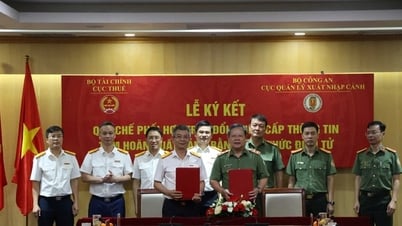
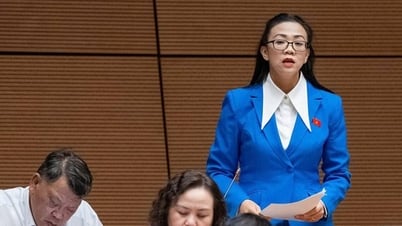
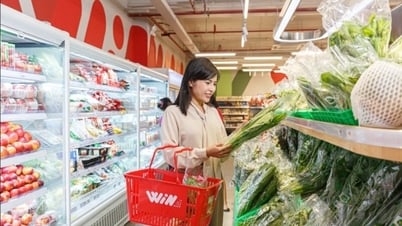


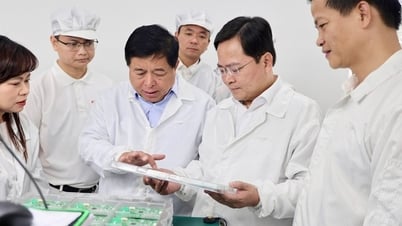





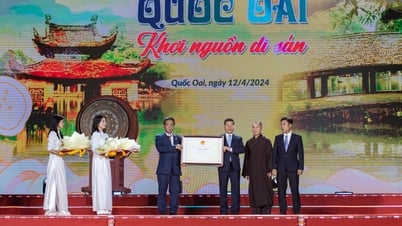

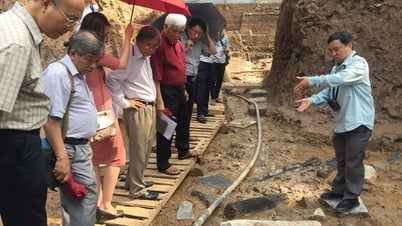























































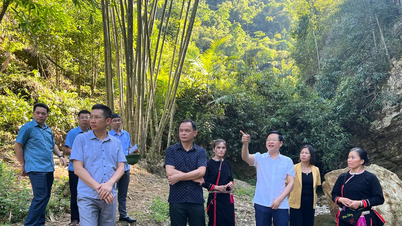

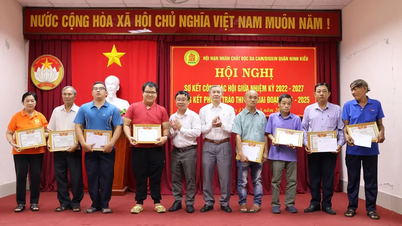

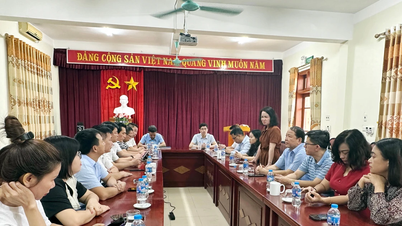










Comment (0)